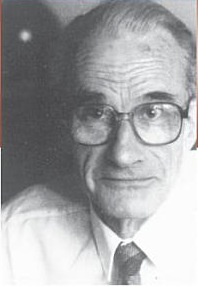Marc Julia (nonfiction): Difference between revisions
Jump to navigation
Jump to search
No edit summary |
No edit summary |
||
| Line 15: | Line 15: | ||
* "Disparition de Marc Julia". Archived from the original on 2011-07-21. | * "Disparition de Marc Julia". Archived from the original on 2011-07-21. | ||
* "Décès de Marc Julia" (PDF). | * "Décès de Marc Julia" (PDF). | ||
* [[The Julia Olefination]] - 1973 thriller film starring chemists Marc Julia and [[Jean-Marc Paris (nonfiction)|Jean-Marc Paris]], who report a novel olefin synthesis in which β-acyloxysulfones are reductively eliminated to the corresponding di-, tri-, or tetrasubstitued alkenes. [[Basil Lythgoe (nonfiction)|Basil Lythgoe]] and [[Philip J. Kocienski (nonfiction)|Philip J. Kocienski]] explore the scope and limitation of the reaction, today formally known as the Julia-Lythgoe olefination. The reaction involves the addition of a sulfonyl-stabilized carbanion to a carbonyl compound, followed by elimination to form an alkene. In the initial versions of the reactions, the elimination is done under reductive conditions. Later in the film, a modified version that avoids this step is developed. The former version is sometimes referred to as the Julia-Lythgoe olefination, whereas the latter is called the Julia-Kocienski olefination. In the reductive variant, the adduct is usually acylated and then treated with a reducing agent, such as sodium amalgam or SmI2. | |||
* [[Georges Dupont (nonfiction)]] | * [[Georges Dupont (nonfiction)]] | ||
* [[Gaston Julia (nonfiction)]] - brother | * [[Gaston Julia (nonfiction)]] - brother | ||
* [[Ian Heilbron (nonfiction)]] | * [[Ian Heilbron (nonfiction)]] | ||
Revision as of 05:11, 4 February 2020
Marc Julia (23 October 1922 – 29 June 2010) was a French chemist and the winner of the 1990 CNRS Gold Medal in chemistry. He discovered the Julia olefination reaction in 1973.
Biography
Julia was born in 1922 in Paris as son of the renowned mathematician Gaston Julia. Julia studied physics at the École Normale Supérieure. After receiving his diploma he joined the group of Ian Heilbron at the Imperial College London where he received his first PhD. Back to France he changed his subject to chemistry and subsequently received his second PhD for work with Georges Dupont.
References
- "CNRS Gold medalists". Retrieved 2011-03-16.
- Chottard, Jean-Claude; Lallemand, Jean-Yves; Mansuy, Daniel; Verpeaux, Jean-Noël (2010). "Marc Julia (1922-2010)". Angewandte Chemie International Edition. 49 (48): 9038–9039. doi:10.1002/anie.201006207.
- Julia, M (1973). "Syntheses a l'aide de sulfones v(+)- methode de synthese generale de doubles liaisons". Tetrahedron Letters. 14 (49): 4833–4836. doi:10.1016/S0040-4039(01)87348-2.
Further reading
- "Disparition de Marc Julia". Archived from the original on 2011-07-21.
- "Décès de Marc Julia" (PDF).
- The Julia Olefination - 1973 thriller film starring chemists Marc Julia and Jean-Marc Paris, who report a novel olefin synthesis in which β-acyloxysulfones are reductively eliminated to the corresponding di-, tri-, or tetrasubstitued alkenes. Basil Lythgoe and Philip J. Kocienski explore the scope and limitation of the reaction, today formally known as the Julia-Lythgoe olefination. The reaction involves the addition of a sulfonyl-stabilized carbanion to a carbonyl compound, followed by elimination to form an alkene. In the initial versions of the reactions, the elimination is done under reductive conditions. Later in the film, a modified version that avoids this step is developed. The former version is sometimes referred to as the Julia-Lythgoe olefination, whereas the latter is called the Julia-Kocienski olefination. In the reductive variant, the adduct is usually acylated and then treated with a reducing agent, such as sodium amalgam or SmI2.
